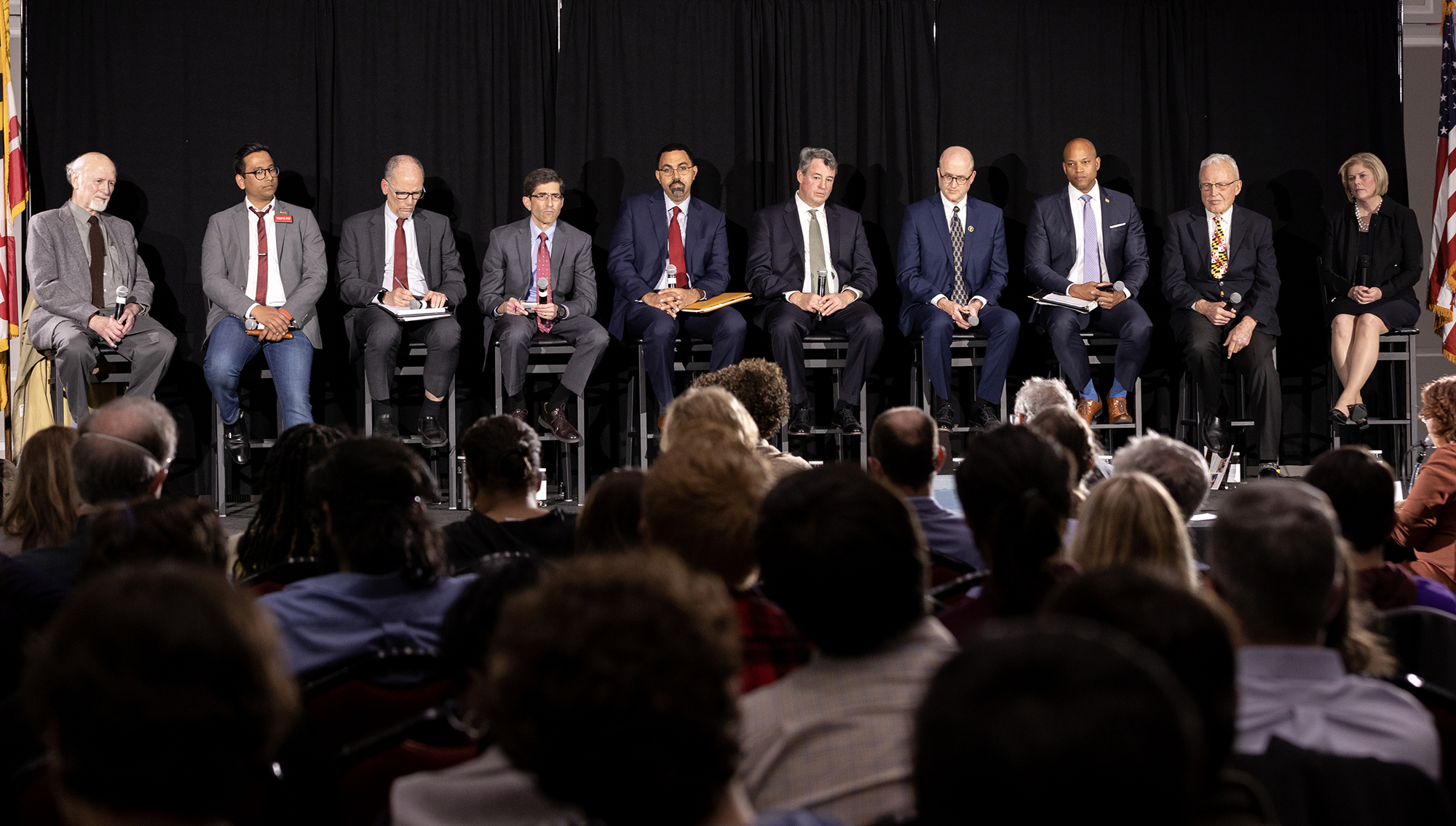Views expressed in opinion columns are the author’s own.
The Maryland governor’s race is upon us, and we’ll all have to say our goodbyes to our incumbent Republican Gov. Larry Hogan, who has fulfilled his two-term limit.
The race to replace Hogan has drawn interest from several candidates who are better known for their work nationally than for their connection to Maryland. Their national name recognition may serve them well in the primary, but making the race to be Maryland’s governor a national one is something we should avoid at all costs.
The Democratic side is especially crowded. These nationally known candidates include John King, education secretary during the Obama administration, and Tom Perez, Obama’s labor secretary and a former head of the Democratic National Committee.
The context of this year’s election will already make it more appealing to the national media. For the last eight years, we have had an extremely popular Republican governor, despite being a heavily blue state. Eyes will be on this election to see if this is an aberration and more broadly to see whether a more moderate version of the Republican party can survive in blue states.
However, Democratic candidates should be extremely weary of playing into the national storylines surrounding the race. Maryland voters have proven they care about party identification more in national races than state ones.
The proof is in the pudding. Maryland has not had a Republican U.S. Senator since 1987 and has not chosen a Republican presidential candidate since 1988, but Hogan was able to win two terms and enjoy approval ratings well over 50 percent. There are many reasons for this, but a key one is in his campaigns he intentionally separated himself from the national Republican party and instead focused on what he would do in Maryland specifically.
The last Democratic candidate for governor Ben Jealous made a huge mistake in trying to nationalize the race. In a 2018 debate, Jealous repeatedly tried to tie Hogan to the national Republican party and to Donald Trump specifically. This strategy failed; Even Hogan’s harshest critics can recognize he and Trump have massive differences in ideology, and the governor was able to effectively pivot and ask what Trump had to do with the race and issues facing Maryland. Jealous lost an election that wasn’t particularly close.
I fear some of the gubernatorial candidates have already fallen into this trap. The vast majority of Perez, King and former nonprofit president Wes Moore’s fundraising has come from outside Maryland. Perez especially has leaned into his national profile, having his former boss Barack Obama narrate one of his campaign ads and touting endorsements from people such as Speaker of the House Nancy Pelosi. That may show his experience and build up his credibility among Democratic voters, but it also betrays how little he has worked in Maryland state politics over the last decade-plus of his career.
It may be tempting for the candidates to focus on hot-button issues going on in other states that have become national debates, such as Florida’s ‘Don’t Say Gay’ bill or the wave of attacks on voting rights. Important issues, no doubt, but they are not that relevant to Maryland specifically. The Democrats have a majority in both houses of the Maryland General Assembly they are unlikely to lose; similar bills will almost certainly not be enacted in this state. Candidates would do better to focus on issues that have more exigence for Maryland, specifically cannabis legalization or state reproductive rights.
People look for different things when voting for candidates for different offices, even if they are partisan. State government arguably has more impact on people’s day-to-day lives than the federal government, and people want to know how the head of that government will deal with circumstances specific to their state.
Maryland Democrats have proven they will not vote solely out of partisan loyalty; Many of them voted for Hogan. If they want to flip the governorship, the Democratic candidates need to decide that they actually are running for governor, and not to be a torch-bearer for the Democratic Party.
Adam Cullen is a junior government and politics major. He can be reached at acullen@umd.edu.



